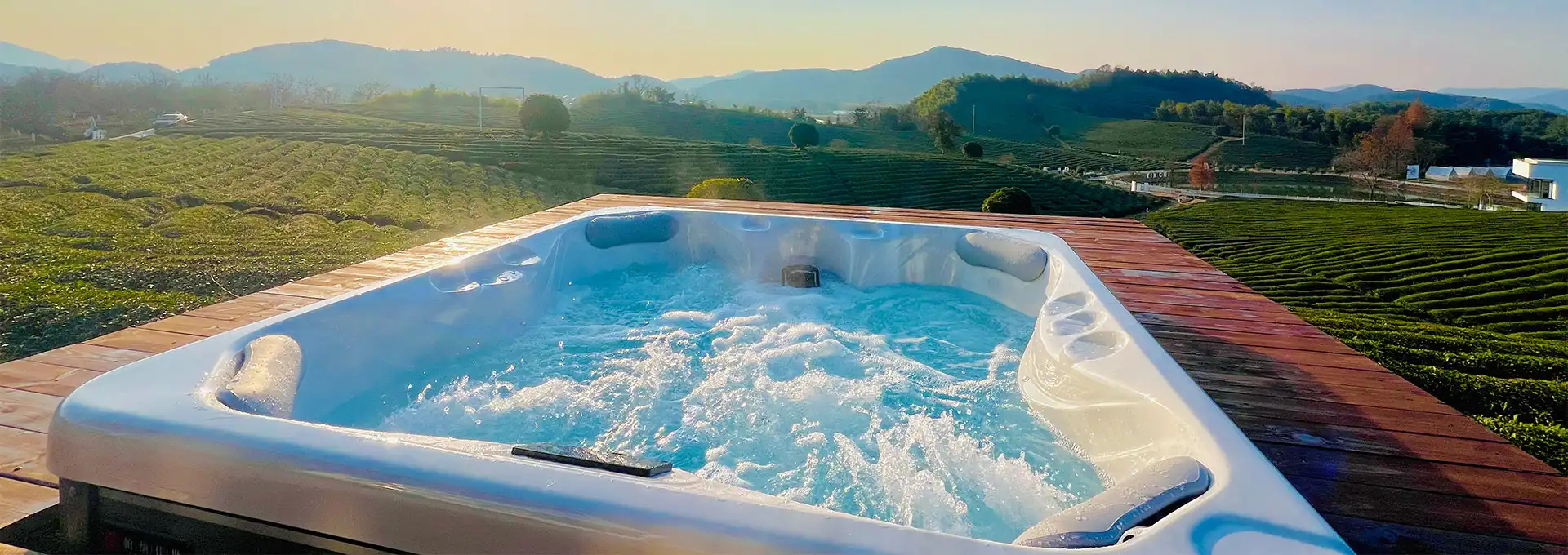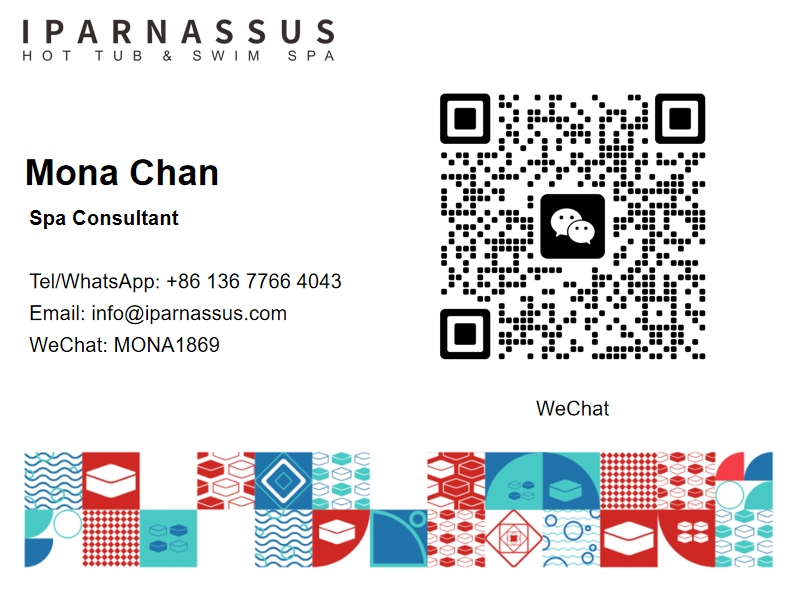How to Choose Spa Supplier for Hotels, Resorts, or Villas?
2024-11-05 11:22:33
The Middle East has long been synonymous with opulent hospitality, boasting some of the world's most luxurious hotels and resorts. From the towering skyscrapers of Dubai to the serene coastal retreats of Oman, the region has established itself as a premier destination for discerning travelers seeking unparalleled comfort and indulgence. The luxury hotel industry in the Middle East has experienced remarkable growth over the past few decades, driven by increasing tourism, business travel, and the region's strategic location as a global transit hub.
However, as global awareness of environmental issues continues to rise, the hospitality sector in the Middle East is facing a new challenge: how to maintain its reputation for luxury while embracing sustainability. This growing emphasis on eco-conscious practices is not just a passing trend but a necessary evolution in response to climate change, resource scarcity, and changing consumer preferences. Hotels and resorts across the region are now seeking innovative ways to reduce their environmental footprint without compromising on the quality of guest experiences.
The challenge lies in striking a delicate balance between providing luxury amenities and adopting sustainable practices. Guests still expect high-end facilities and services, but there is an increasing demand for these to be delivered in an environmentally responsible manner. This shift in consumer expectations has prompted the hospitality industry to reimagine its approach to luxury, leading to the emergence of "eco-luxury" as a new paradigm in Middle Eastern hospitality.
The Hot Tub Dilemma in Middle Eastern Hotels
Among the many luxury amenities offered by high-end hotels in the Middle East, hot tubs have become a staple feature. Guests often view these as essential components of a luxurious stay, providing relaxation, stress relief, and a touch of indulgence. The demand for hot tubs in hotel rooms, suites, and spa facilities has remained consistently high, reflecting their status as a symbol of luxury and comfort.
However, the inclusion of hot tubs in hotel offerings presents significant environmental concerns, particularly in terms of water usage and energy consumption. In a region where water scarcity is a pressing issue, the high water requirements of traditional hot tubs pose a considerable challenge. A standard hot tub can hold anywhere from 1,000 to 2,000 liters of water, which needs to be regularly changed and treated to maintain hygiene standards. This not only consumes large quantities of water but also requires energy-intensive treatment processes.
Energy consumption is another major concern. Keeping hot tubs at the desired temperature, especially in the hot climate of the Middle East, requires substantial amounts of electricity. This contributes to increased carbon emissions and puts additional strain on energy resources, which are often derived from non-renewable sources in many Middle Eastern countries.
The unique climate of the Middle East further complicates the hot tub dilemma. With temperatures frequently soaring above 40°C (104°F) during summer months, maintaining comfortable water temperatures in outdoor hot tubs becomes an energy-intensive task. The intense sunlight and heat can also accelerate the degradation of traditional hot tub materials, leading to more frequent replacements and increased waste.
Moreover, the high evaporation rates in the arid Middle Eastern climate mean that water loss from hot tubs is significantly higher than in other regions. This not only increases water consumption but also affects the concentration of chemicals used to keep the water clean, requiring more frequent monitoring and adjustment.
These challenges have prompted hotels and resorts in the Middle East to seek innovative solutions that can satisfy guest expectations for luxury while aligning with sustainable practices. The need for eco-friendly alternatives to traditional hot tubs has never been more pressing, setting the stage for a revolution in hotel amenities.
Sustainable Hot Tub Solutions: The iParnassus® Advantage
In response to the growing need for sustainable luxury in the hospitality sector, innovative companies like Shenzhen Iparnassus Intelligent Spas Co., LTD have stepped up to provide solutions. The iParnassus® brand of hot tubs represents a significant leap forward in addressing the environmental concerns associated with traditional models while maintaining the high standards of luxury expected by guests in Middle Eastern hotels.
iParnassus® hot tubs are designed with a deep understanding of the unique challenges posed by the Middle Eastern climate and the stringent requirements of the luxury hospitality industry. These eco-friendly hot tubs incorporate several key features that set them apart from conventional models:
Firstly, the hot tubs feature heat-resistant aluminum-plastic composite siding. This innovative material offers superior insulation properties compared to traditional hot tub materials. It helps maintain water temperature more efficiently, reducing the energy required for heating. The composite nature of the material also makes it more durable and resistant to the harsh Middle Eastern climate, extending the lifespan of the hot tub and reducing the need for frequent replacements.
Secondly, the tub surface is made of a high-temperature resistant acrylic material. This specially formulated acrylic can withstand the intense heat and UV radiation typical of the Middle Eastern climate without degrading or discoloring. The durability of this surface not only ensures a longer-lasting product but also reduces the need for chemical treatments to maintain its appearance, thereby minimizing the environmental impact of maintenance procedures.
Thirdly, iParnassus® hot tubs come equipped with a light-colored insulation cover. This feature is particularly crucial in the Middle Eastern context. The light color reflects a significant portion of the sun's rays, helping to regulate the water temperature naturally. This passive cooling effect reduces the energy required to maintain optimal water temperatures, especially during the scorching summer months.
One of the most significant advantages of iParnassus® hot tubs is their advanced circulating filtration and bacteria elimination system. This system significantly reduces the need for frequent water changes, addressing one of the primary environmental concerns associated with traditional hot tubs. By extending the time between water changes, these hot tubs conserve water and reduce the energy and chemicals required for water treatment.
The combination of these features makes iParnassus® hot tubs particularly well-suited to the challenges of the Middle Eastern hospitality industry. They offer a solution that maintains the luxury experience guests expect while significantly reducing the environmental impact associated with traditional hot tubs.
Environmental Impact and Energy Efficiency
The environmental impact and energy efficiency of iParnassus® hot tubs represent a significant improvement over traditional models, particularly in the context of Middle Eastern hotels. These advancements are crucial in addressing the water conservation and energy consumption concerns that have long been associated with hot tubs in luxury hospitality settings.
Water conservation is a primary focus of iParnassus® hot tubs. The advanced circulating filtration system plays a key role in this aspect. By continuously cleaning and purifying the water, this system extends the time between necessary water changes from days to weeks or even months, depending on usage. This results in substantial water savings over time. For instance, a traditional hot tub might require complete water changes every 3-4 months, consuming thousands of liters of water per year. In contrast, an iParnassus® hot tub can potentially reduce this water consumption by 50-70%, a significant saving in water-scarce regions of the Middle East.
The bacteria elimination system further contributes to water conservation by maintaining water quality for extended periods. This system uses advanced oxidation processes to eliminate harmful bacteria and other microorganisms without relying heavily on chemical treatments. As a result, the water remains safe and hygienic for longer periods, reducing the frequency of water changes and the amount of chemicals needed for maintenance.
Energy efficiency is another area where iParnassus® hot tubs excel. The heat-resistant aluminum-plastic composite siding and the high-temperature resistant acrylic surface work together to provide superior insulation. This insulation helps maintain water temperature with less energy input, reducing the load on heating systems. Studies have shown that well-insulated hot tubs can use up to 30% less energy compared to poorly insulated models.
The light-colored insulation cover is a simple yet effective feature that significantly contributes to energy efficiency. By reflecting sunlight, it helps prevent excessive heating of the water during hot days, reducing the energy needed for cooling. Conversely, it also helps retain heat during cooler periods, minimizing heat loss and the energy required to maintain desired temperatures.
When compared to traditional hot tub models, the energy savings of iParnassus® hot tubs are substantial. A conventional 6-person hot tub can consume between 3,000 to 7,500 kWh of electricity per year, depending on usage and climate conditions. In contrast, an energy-efficient model like those offered by iParnassus® can potentially reduce this consumption by 20-40%, translating to significant energy savings and reduced operating costs for hotels.
The long-term benefits of these water and energy-saving features are considerable. For a luxury hotel in the Middle East, the adoption of iParnassus® hot tubs could result in annual water savings of thousands of liters per hot tub and energy savings of several thousand kilowatt-hours. Over the lifespan of the hot tub, which can be extended due to the durability of materials used, these savings accumulate to substantial amounts, both in terms of resource conservation and cost reduction.
Moreover, the reduced need for chemical treatments not only lessens the environmental impact but also enhances the guest experience by providing a more natural and skin-friendly bathing environment. This aligns well with the growing consumer preference for eco-friendly luxury experiences.
In conclusion, the integration of eco-friendly hot tubs like those from iParnassus® is redefining Middle Eastern hospitality. By addressing the environmental concerns associated with traditional luxury amenities without compromising on guest experience, these innovative solutions are paving the way for a new era of sustainable luxury. As the hospitality industry in the Middle East continues to evolve, the adoption of such eco-friendly practices will likely become not just a trend, but a standard, ensuring that the region's reputation for unparalleled hospitality endures in an environmentally conscious world.
For more information on hot tub installations and our products, please feel free to contact us at info@iparnassus.com.
References
1. Al-Aomar, R., & Hussain, M. (2017). An assessment of green practices in a hotel supply chain: A study of UAE hotels. Journal of Hospitality and Tourism Management, 32, 71-81.
2. Bohdanowicz, P., & Martinac, I. (2007). Determinants and benchmarking of resource consumption in hotels—Case study of Hilton International and Scandic in Europe. Energy and Buildings, 39(1), 82-95.
3. Kasim, A. (2007). Corporate environmentalism in the hotel sector: Evidence of drivers and barriers in Penang, Malaysia. Journal of Sustainable Tourism, 15(6), 680-699.
4. Manaktola, K., & Jauhari, V. (2007). Exploring consumer attitude and behaviour towards green practices in the lodging industry in India. International Journal of Contemporary Hospitality Management, 19(5), 364-377.
5. Mensah, I. (2006). Environmental management practices among hotels in the greater Accra region. International Journal of Hospitality Management, 25(3), 414-431.
6. Millar, M., & Baloglu, S. (2011). Hotel guests' preferences for green guest room attributes. Cornell Hospitality Quarterly, 52(3), 302-311.
7. Pizam, A. (2009). Green hotels: A fad, ploy or fact of life? International Journal of Hospitality Management, 28(1), 1.
8. Robinot, E., & Giannelloni, J. L. (2010). Do hotels' "green" attributes contribute to customer satisfaction? Journal of Services Marketing, 24(2), 157-169.
9. Shenzhen Iparnassus Intelligent Spas Co., LTD. (2023). Company Profile and Product Information.
10. United Nations World Tourism Organization. (2019). International Tourism Highlights, 2019 Edition. UNWTO, Madrid.
Send Inquiry
Related Industry Knowledge
- What are the Best Energy-Efficient Hot Tub Solutions for Middle Eastern Hotels?
- Can You Go in a Hot Tub with Poison Ivy?
- How to Remove a Swim Spa?
- Is the Hot Tub Good for Sore Muscles?
- What Happens When a Swim Spa Loses Heat?
- How to Maintain a Swim Spa with an Oxinator?
- Is Hot Tub Therapy Bad for You?
- How Often to Chlorinate a Swim Spa?
- Should I shower after hot tub?
- How to Install a Swim Spa Inground?
_1768872582663.webp)


